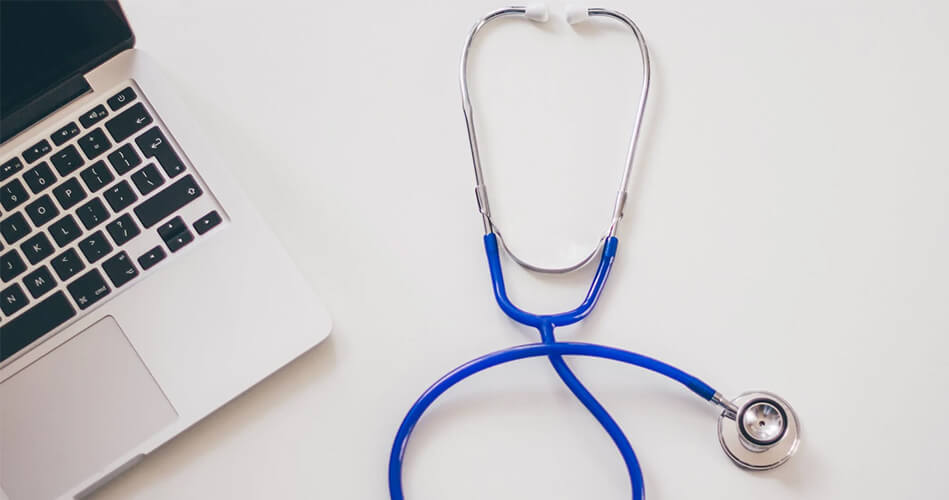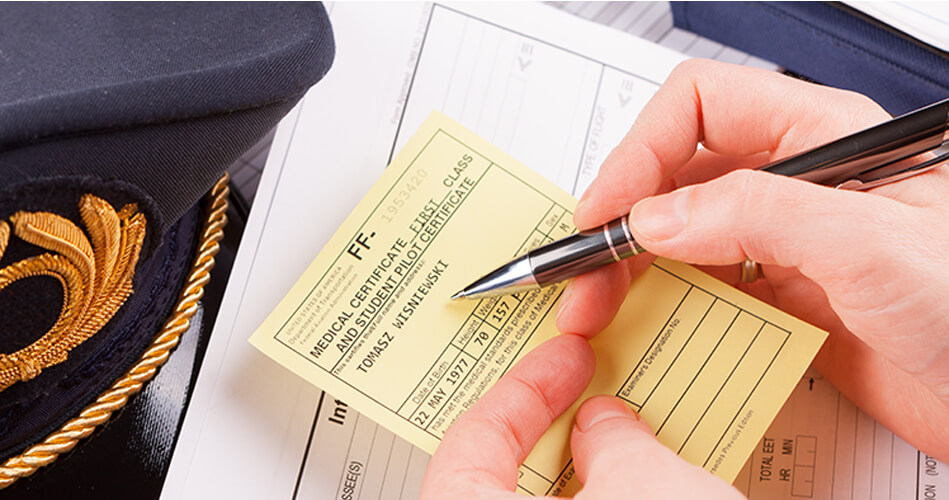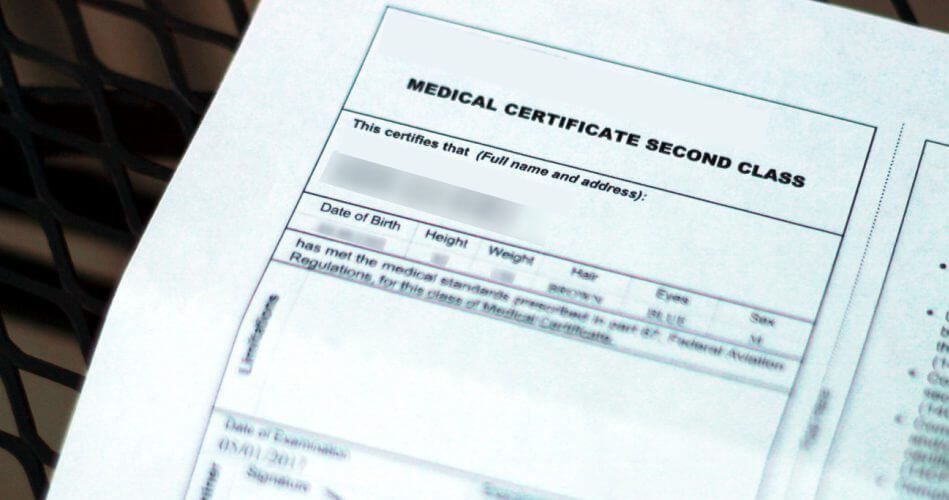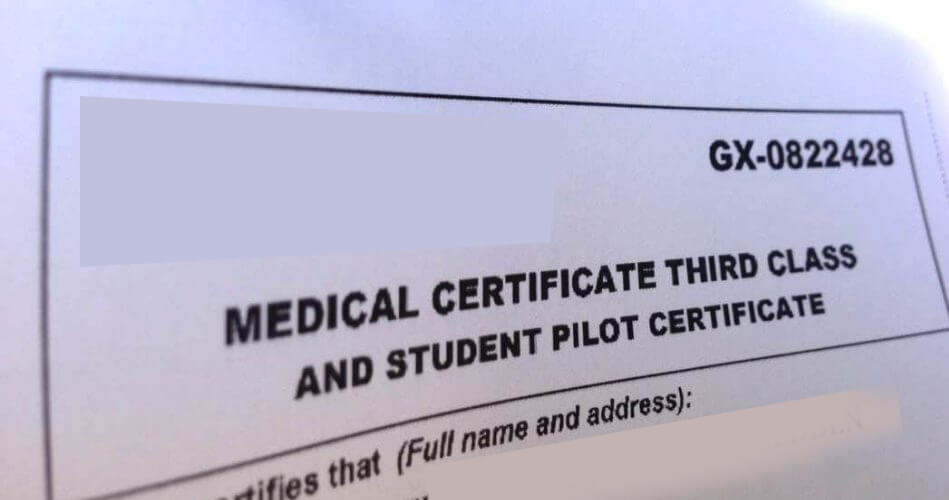

Most pilots require medical certificates to fly. Some pilots, such as sports pilots and balloon pilots, are not required to obtain a medical certificate for flying. However, the rest need to pass an aviation medical examination to legally take advantage of the benefits of their test certificates. That is Why should you get a medical check before studying aviation?
Aviation medical exams can be a concern for many. Will you pass? What exactly is the examiner looking for? Are you looking good enough? Should you reveal some health problems in the forms? What happens if you don’t pass?
There are a lot of questions about the aviation medical examination. Even the healthiest people get nervous before an exam. The good news is that most applicants pass the test – sometimes it takes some time.
Why should you get a medical check before studying aviation?

In order for a plane to be operated legally, all pilots must have an existing medical certificate. This certificate is obtained through a medical examination. A medical examination is necessary to ensure that the holder of the pilot’s license (is still) insufficient health to operate the aircraft properly.
There are 3 classes and they are categorized as follows:
- Class 1 medical is for Commercial pilots (CPL (A), ATPL (A))
- Class 2 medical is for Private Pilots (PPL), Balloonists (BPL), or Sailplane Pilots (SPL)
- Class 3 medical is for Air Traffic Controllers
Do Your Research

Why should you get a medical check before studying aviation? If you are fit and healthy, don’t worry. However, most pilots have some minor health errors. If you do, you should check whether any of these problems will exclude you. Others may ask you to get a special medical certificate. Having one will give your doctor important information about your health.
Are you worried about a specific medical condition? Make sure that you prepare yourself by doing some research before you prepare for your appointment. The FAA Online Medical Examination Guide contains information you can find about some health problems. There are also plenty of other resources available online for free that can guide you in the right direction.
What the Examiner Will Do?

The student will undergo a medical examination by a doctor accredited by the Saudi Civil Aviation Authority, who will be the only one authorized to set the necessary standards.
More than 90% of all applicants pass the medical examination because it only determines the general health of the applicant and their physical ability to become pilots.
The examiner will verify your identity after registration and forms are complete, and will review information related to your health history. They may also notify you if there are any details that may delay you from obtaining your medical certificate. It will determine the specific type of aviation medical certificate to which the severity of the test is advanced. Third-class medical examinations are the least intrusive, while the First-class medical examinations require a deeper examination.
Types of Aviation Medical Exams

Usually, applicants under the age of 40 must undergo the simplest third-class medical examination. This entails examining your eyesight, including peripheral vision, nearsightedness, farsightedness, and color vision. The examiner will also perform an audition test to determine if you are able to hear on a basic level.
Before performing a general physical procedure, the examiner will check with you the following:
- Health problems
- pharmaceutical
- Surgeries you’ve had in the past
- Previous doctor visits
Urine analysis will also be done for the examiner. This helps to identify any diseases, blood or proteins in the urine. Expect your blood pressure to be checked, as well as questions about your general mental health.
Some medical requirements (for example, vision and hearing standards) differ for first and second-class medical certificates, but in general, the testing for each class is very similar. First-class medical examinations must be performed more frequently and require the applicant to perform an electrocardiogram (ECG) annually if they are over the age of 40.
First-Class Medical Certificate

Who needs one?
First-class medical certificates are a requirement for air transport pilots. Any pilot exercising the privileges of an air transport pilot must receive and maintain a first-class medical certificate in order to fly the airlines’ aircraft scheduled under CFR 14 Part 121.
What is the duration period?
For airline pilots or those who otherwise require the maintenance of a first-class medical certificate, the valid period of the medical certificate is six months for those aged 40 or over, or 12 months for pilots under the age of 40.
Pilot with a first-class medical certificate can benefit from second class medical benefits (commercial pilots) for 12 months, regardless of their age. A pilot with a first-class medical certificate can benefit from third-class medical benefits for 24 months if any of them is 40 years old or older, or 60 months if he or she is less than 40 years old.
Second-Class Medical Certificate

Who needs one?
Pilots who exercise commercial pilot privileges need at least a second-class medical certificate. In addition, flight engineers, navigators, and air traffic controllers are required to maintain a second class medical certificate.
What is the duration period?
The Second Class medical certificates are valid for its pilots’ holder for 12 months. A pilot with a second-class medical certificate can exercise third-class medical benefits for 24 months if he or she is 40 years old or older, or 60 months if he or she is less than 40 years old.
Third-Class Medical Certificate

Who needs one?
Student pilots, recreational pilots, private pilots and aviation instructors who work as a pilot (or work as a required crewmember) need at least a third-class medical degree.
What is the duration period?
The third-class medical certificate is valid for 24 months if you are 40 years old or older, or for 60 months if you are less than 40 years old.
Also, read:
Which certificate to obtain: Different types of pilot licenses
MORE ON


Which certificate to obtain: Different types of pilot licenses
Aviation WorldQUESTIONS ABOUT OUR FLIGHT ACADEMY? ASK A TRAINING ADVISOR





